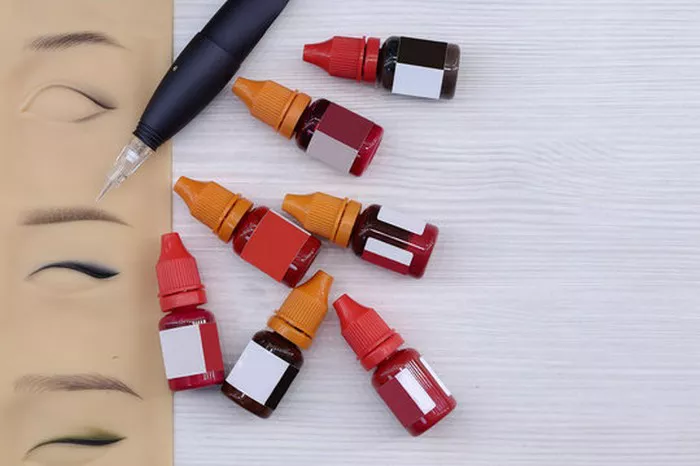Getting a tattoo is a significant investment of time, money, and personal expression. It’s not uncommon to encounter issues during the tattooing process, one of which is ink not sticking to the skin. Understanding the reasons behind this issue and how to address it can make the difference between a beautiful tattoo and a frustrating experience. This article delves into why your tattoo ink might not be sticking and provides solutions and preventive measures to ensure a successful tattooing process.
Why Is Tattoo Ink Not Sticking?
Tough Skin
One of the primary reasons for tattoo ink not sticking can be attributed to the natural characteristics of your skin. Some individuals have skin that is inherently more resistant to ink. Tough or thick skin can create barriers that make it difficult for the ink to penetrate deeply enough to create a lasting mark. This resistance can be due to the skin’s texture, hydration level, or even its natural healing properties.
Lubricant Issues
During the tattooing process, lubricants are used to help the needle glide smoothly over the skin and to protect it from excess friction. However, certain lubricants, particularly petroleum jelly, can interfere with ink penetration. Petroleum jelly creates a barrier on the skin that may prevent the tattoo ink from being properly absorbed. This can lead to issues where the ink doesn’t stick or heal correctly.
Tattoo Depth
Another critical factor is the depth at which the ink is inserted. For a tattoo to be successful, the ink needs to be deposited into the dermis, the second layer of skin beneath the epidermis. If the ink is not inserted deeply enough, it may not set correctly, leading to poor color retention and an incomplete appearance. This issue can arise from the tattoo artist’s technique or the tattoo machine settings.
Machine Settings
Tattoo machines require precise settings to ensure optimal performance. Incorrect machine settings, such as needle depth, speed, and power, can affect how well the ink is deposited into the skin. If the machine is not calibrated correctly, it can lead to inadequate ink penetration and, consequently, issues with the tattoo not sticking properly.
Skin Reactions
In some cases, the skin may react negatively to the tattoo ink, leading to rejection or poor retention. Allergic reactions to the ink, infections, or other skin conditions can interfere with the healing process and cause the ink to be expelled from the skin. This issue can manifest as redness, swelling, or other signs of irritation, affecting the overall quality of the tattoo.
SEE ALSO: How Long Does a New Tattoo Hurt?
Solutions to Tattoo Ink Issues
Experienced Artist
If you’re struggling with tattoo ink not sticking, seeking out an experienced tattoo artist is crucial. A professional with experience in handling different skin types and tattooing techniques will be better equipped to address issues related to tough skin or incorrect depth. An experienced artist can adjust their technique and machine settings to ensure that the ink adheres properly.
Change Lubricant
Switching to a different lubricant can also resolve issues with ink not sticking. Instead of using petroleum jelly, opt for a lubricant specifically designed for tattooing that does not interfere with ink penetration. There are various products available that provide the necessary glide without creating a barrier that can affect ink absorption.
Adjust Technique
Ensuring that the tattoo ink is being inserted at the correct depth is essential. If you notice issues with ink retention, discuss this with your tattoo artist. They may need to adjust their technique, such as changing the needle depth or adjusting the angle of the needle, to ensure that the ink reaches the dermis layer of the skin.
Machine Tuning
Properly tuning the tattoo machine is another key factor. Tattoo machines must be calibrated correctly to achieve optimal performance. Check that the needle depth, speed, and power settings are appropriate for the type of tattoo being done. If necessary, consult with a professional to ensure that your machine is set up for the best results.
Medical Advice
If you suspect that allergic reactions or infections are affecting your tattoo, consult a healthcare professional. They can provide guidance on managing any adverse reactions and ensure that you receive appropriate treatment. Addressing medical issues promptly can prevent further complications and improve the outcome of your tattoo.
Preventive Measures
Skin Preparation
Proper skin preparation before getting a tattoo is crucial. This includes ensuring that the skin is clean, exfoliated, and well-hydrated. Avoid using any products that may create a barrier or affect the skin’s ability to absorb ink. Preparing the skin properly can enhance the chances of a successful tattoo with good ink retention.
Aftercare
Following recommended aftercare procedures is essential for ensuring proper healing and ink retention. This includes keeping the tattoo clean and moisturized, avoiding direct sunlight, and refraining from picking at scabs. Proper aftercare helps prevent infections and promotes the best possible healing environment for your tattoo.
Patch Test
Conducting a patch test before getting a tattoo can help identify any potential allergic reactions to the ink. Applying a small amount of ink to a test area and monitoring it for any adverse reactions can provide valuable information and reduce the risk of complications. This step is especially important if you have sensitive skin or a history of allergic reactions.
Conclusion
Understanding why your tattoo ink may not be sticking and addressing these issues proactively can significantly impact the outcome of your tattoo. Whether it’s dealing with tough skin, choosing the right lubricant, adjusting technique, or ensuring proper machine settings, taking these factors into account can lead to a more successful tattooing experience. By seeking the expertise of a skilled tattoo artist, using appropriate products, and following proper aftercare procedures, you can achieve a tattoo that not only looks great but also lasts for years to come.
Related Topics

